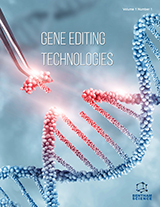Abstract
Rheumatoid Arthritis (RA) is a chronic autoimmune inflammatory disease
affecting about 0.5 to 1% of the population and leading to disability if left untreated.
Challenges with the currently used drugs, especially toxicity and limited clinical
efficacy, along with complications like disorders of the heart and respiratory system,
carpal tunnel syndrome, Sjögren’s syndrome, tendon rupture, cervical myelopathy,
pleuritic, pericarditis, scleritis, vasculitis, and sexual dysfunction limit its usage. Thus,
finding new therapeutic targets and the development of new drugs is the need of the
hour. This will be aided by studying different contributing factors for disease
development and progression, as well as elucidation of RA pathogenesis.
Autoantibodies in response to cells' own antigens play a regulatory role in various
autoimmune diseases like heumatoid arthritis. Some autoantibodies like rheumatoid
factor (RF) and anti citrullinated protein antibody (ACPA) are also used as serological
markers for RA diagnosis apart from their role in disease prognosis. In this chapter, the
latest insights regarding the regulatory role of immune cell-mediated antibodies in
rheumatoid arthritis are addressed.
Keywords: Anti Citrullinated Protein Antibody (ACPA), Autoantibodies, Rheumatoid Arthritis, Rheumatoid Factor (RF), Serological markers.






















